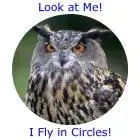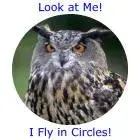aarthrj3811 said:
~werleibr~
so remember scientific theory will always be a theory, while scientific law will always be a law.
That is partially correct...Theories are used for testing someone’s idea in a Scientific manner. Theories are proven wrong regularity..
Scientific Laws can only be changed by proving to a 7 person board that the old law is flawed...Art
Once again ART you are FAILING to COMPREHEND anything scientific.
Lay people often misinterpret the language used by scientists. And for that reason, they sometimes draw the wrong conclusions as to what the scientific terms mean.
Three such terms that are often used interchangeably are "scientific law," "hypothesis," and "theory."
In layman’s terms, if something is said to be “just a theory,” it usually means that it is a mere guess, or is unproved. It might even lack credibility. But in scientific terms, a theory implies that something has been
proven and is generally accepted as being true.
Scientific Law: This is a statement of fact meant to describe, in concise terms, an action or set of actions. It is generally accepted to be true and universal, and can sometimes be expressed in terms of a single mathematical equation.Specifically, scientific laws must be simple, true, universal, and absolute. They represent the cornerstone of scientific discovery, because if a law ever did not apply, then all science based upon that law would collapse. Some scientific laws, or laws of nature, include the law of gravity, Newton's laws of motion, the laws of thermodynamics, Boyle's law of gases, the law of conservation of mass and energy, and Hook’s law of elasticity.
Hypothesis: This is an educated guess based upon observation. It is a rational explanation of a single event or phenomenon based upon what is observed, but which has not been proved. Most hypotheses can be supported or refuted by experimentation or continued observation.
Theory: A theory is what one or more hypotheses become once they have been verified and accepted to be true. A theory is an explanation of a set of related observations or events based upon proven hypotheses and verified multiple times by detached groups of researchers.
In fact, some laws, such as the law of gravity, can also be theories when taken more generally. The law of gravity is expressed as a single mathematical expression and is presumed to be true all over the universe and all through time. Without such an assumption, we can do no science based on gravity's effects. But from the law, we derived the theory of gravity which describes how gravity works, what causes it, and how it behaves.
The biggest difference between a law and a theory is that a theory is much more complex and dynamic. A law describes a single action, whereas a theory explains an entire group of related phenomena. And, whereas a law is a postulate that forms the foundation of the scientific method, a theory is the end result of that same process
Some scientific theories include the theory of evolution, the theory of relativity, the atomic theory, and the quantum theory. All of these theories are well documented and proved beyond reasonable doubt. Yet scientists continue to tinker with the component hypotheses of each theory in an attempt to make them more elegant and concise, or to make them more all-encompassing. Theories can be tweaked, but they are seldom, if ever, entirely replaced.
A theory is developed only through the scientific method, meaning it is the final result of a series of rigorous processes. Note that theories do not become laws. Scientific laws must exist prior to the start of using the scientific method because, as stated earlier, laws are the foundation for all science.
So ART theorys are not being proven wrong everyday. The Hypothesis within the theory may be tweaked. YOU ARE USING THEORY WRONG AGAIN from how it was asked to be utilized.
There are not THEORYS or LAWS on how LRL's work, only HYPOTHESIS'.
So please try to refer to your guesses on how these things work as HYPOTHESIS'. If there was a THEORY OR LAW on how LRLS worked we would not be debating because they would be proven to work.
Also Art, where the h3!! did you read that a panel of 7 people decide if a law is no longer a law?!?









